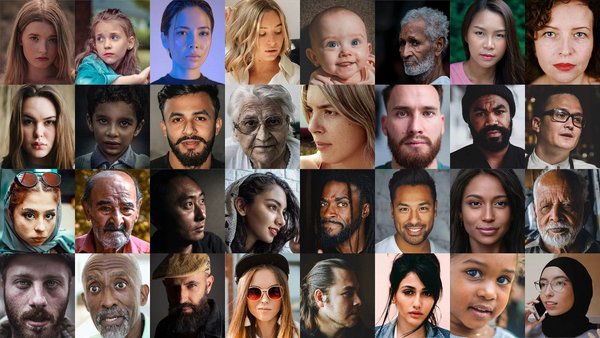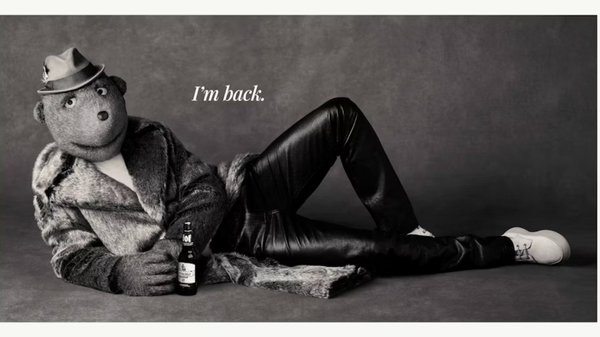In defence of brand storytelling /
Storytelling increasingly feels like a dirty word in marketing circles, connoting a flippant, regressive or trivial approach to the business of selling things. But marketers abandon it at their peril.
James Womersley
/
Photo by Jaredd Craig on Unsplash
In Steven Pinker’s latest book Rationality, the Harvard psychologist asserts that ‘rationality ought to be the lodestar for everything we think and do’ and holds it up as a restorative tonic to many of modern society’s afflictions.
And yet, desirable as it may seem to be to submit all of one’s beliefs to the trials of reason and evidence, ‘it is not the natural human way of believing’. Instead, the human cognitive default is what Pinker terms the ‘mythology mindset’: the realm of storytelling. This is the mindset that gave rise to the great narrative epics of civilisations – the Iliad, the Epic of Gilgamesh, the Bhagavad Gita. It is the mindset that has helped to imbue the world’s great religions with such enduring psychological appeal – religions that, despite the increasing secularisation of society, still set the conceptual parameters of our moral universe.
We don’t have to make a definitive choice between experiences and stories. And compelling stories can be powerful vehicles for communicating human truth.
James Womersley, Contagious
Human beings may respect the importance of rationality, but as a species we persistently crave and seek out stories. There are clear prehistorical reasons for why stories are so cognitively potent. As our highly social species evolved on the Pleistocene savannah, we repeatedly had to impart important information and values to a wide number of people in a way that was durable or ‘sticky’. This required a format that appealed to as many parts of the human brain as possible. The psychologist and management thinker Paul J Zak’s research examines how the story format psychologically ‘transports’ us: oxytocin – the neurochemical responsible for empathy – is synthesised in our brains and we then simulate the emotions that characters in the story would feel.
A paper published in the journal NeuroImage has shown how stories do not just activate the classical language-processing areas of the brain but stimulate any other areas that we would use if we ourselves were directly experiencing the events described. For instance, if we read that a character is smelling a mug of freshly brewed coffee, our own primary olfactory cortexes light up. This stimulation of multiple cerebral areas works to imprint the story more effectively in our memories.
Tale enders /
Despite the evidence for the psychological potency of the story format, more than a few esteemed industry voices have sounded the death knell for storytelling in marketing. Charles Vallance, founding partner of VCCP, previously declared, ‘The storyteller is dead. Long live the story doer,’ arguing that brands shouldn’t tell a story, but should instead be the story. More recently, Ambika Pai, chief strategy officer at Mekanism, wrote in the last issue of this magazine how stories ‘fictionalise’, ‘dramatise’ and ‘hyperbolise’, before rhetorically asking ‘Why are we still telling stories? Isn’t it time for advertisers to start telling the truth?’
What too often seems to be missing in these clarion calls is nuance. We don’t have to make a definitive choice between experiences and stories. And compelling stories can be powerful vehicles for communicating human truths. Effective marketing is invariably the blending of different approaches: science and art, performance marketing alongside long-term brand building, acts in tandem with narratives. Indeed, the need for accomplished, vivid storytelling is perhaps even more necessary now, as the world embarks upon the long road to economic and societal recovery from a global pandemic. As Engine’s chief strategy officer, Gen Kobayashi, commented in late 2020: ‘History shows audiences want escapism in hard times […] We should be artists of escape, not reflectors of reality.’
The plot thickens /
Powerful proof that storytelling is alive and well can be found in some of the most impactful creative work from recent years. These campaigns leverage the power of stories and, whether consciously or subconsciously, mirror the prototypical narratives of world literature. In his 2004 book The Seven Basic Plots: Why We Tell Stories, writer Christopher Booker sets out seven archetypal plot lines that reoccur across the literary canon, including the ‘Rags To Riches’ and the ‘Voyage & Return’ narratives. These plot lines are repeatedly reflected back at us in award-winning campaigns.
Nike’s Dream Crazy (Cannes Creative Effectiveness Grand Prix 2021) is a reality-rooted, multi-character tale of ‘Overcoming The Monster’, where protagonists set out to defeat antagonistic and often existential threats. The ‘monsters’ in the campaign’s hero film include prejudice, poverty and physical disability.
On a different note, RC Cola’s Basta campaign (winner of the 2021 YouTube Works Grand Prix) comprises the confusion, conflict and contented resolution of the ‘Comedy’ plot line. This absurdist, viral hit from the Philippine cola brand tells the story of a young boy born with drinking glasses fused to his back. The spot ends with his family drinking from the glasses through straws, after his mother reveals herself to be a human-sized bottle of RC Cola. The campaign became the number one trending topic on Twitter and has been credited with driving a 67% increase in sales for the brand.
Of course, storytelling is not a silver bullet for brands. It is just one of many important tools at a marketer’s disposal. However, it would be foolhardy for brands to start turning their backs on storytelling; in so doing, they would be closing the door on one of the most ancient and potent tools of human psychological influence.
Get Contagious membership /
This article was taken from issue 70 of Contagious magazine. To get more Contagious thinking, including creative case studies, expert interviews and research materials, become a member. Find out more or arrange a free trial here.
Want more of the same? /
We don’t just write about best-in-class campaigns, interviews and trends. Our Members also receive access to briefings, online training, webinars, live events and much more.







